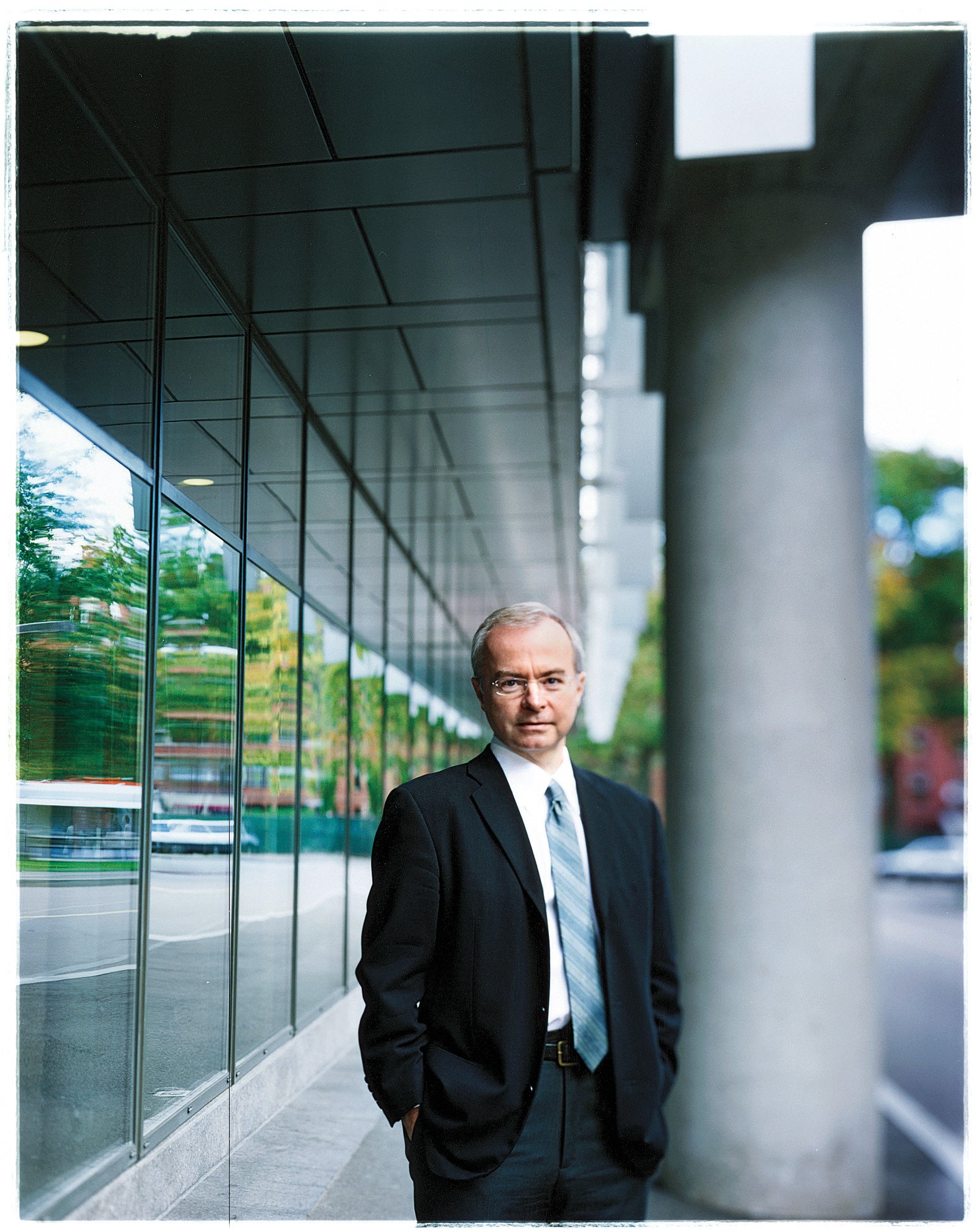The global economy is alarmingly vulnerable to private contractual obligations and property arrangements. That’s one lesson from the credit market freeze that cascaded into Europe’s financial crisis. Another lesson: The state is back. Even those most enthusiastic about economic globalization have turned to their national state for bailouts and regulatory protection.
“When private law can be a form of global governance and local rules can have global consequences,” says HLS Professor David Kennedy ’80, “politics and economics take place on different scales in different institutions, making it terribly difficult to understand the workings of global policy. Just how are we now governed?”
That’s the basic question behind HLS’s Institute for Global Law and Policy, of which Kennedy is director. Formerly the European Law Research Center, the institute was renamed last year to reflect its broader research scope and to engage the increasingly legalized and disaggregated nature of global governance across a range of issues, from humanitarian action and war to poverty, risk management and economic development. Kennedy says each of these issues is also a legal regime: “We need to understand that even things we don’t like—war, inequality, underdevelopment—have legal roots.” Yet the laws governing these issues come not from a single source—such as the UN—but from various national and subnational governments and institutions. Therefore, Kennedy says, “We must look for disaggregated solutions.”
To that end, IGLP’s theoretical work centers on developing better maps of the global legal order to improve the range of possible solutions. Environmental protection, for example, may be more fruitfully tackled by cities working together—or by collaboration among military forces—than by the search for global treaties and intergovernmental agreement. The institute is committed to bringing fresh thinking and new perspectives to discussions of global policy—particularly by encouraging “voices from the periphery,” as Kennedy puts it, including the perspectives of scholars from such places as Russia, Egypt, Colombia, Thailand, Brazil, China, South Africa and India. The institute also promotes networking among scholars around the world.
So far this year, the institute has secured important relationships with sponsors and funders, and has developed a network of scholars, many of whom serve on IGLP’s Honorary, Advisory and Academic Councils. It also launched its signature program: a 10-day workshop for young scholars and policymakers from around the world. The June 2010 workshop, which focused on global policy in the aftermath of the financial crisis, drew more than 80 participants from more than 35 countries. This fall’s events included a seminar on mergers and acquisitions in the context of the financial crisis, and current developments in EU and U.S. antitrust law.
The 2011 conference next June, co-sponsored by the School of Oriental and African Studies (University of London), the Bernard and Audre Rapoport Center for Human Rights and Justice (University of Texas) and the Sciences Po Law School (Paris), will introduce a series of seminars. These will bring scholars together as they advance their work toward publication.
“The range of solutions that have been developed for global challenges from poverty alleviation to security has been far too narrow,” Kennedy says. And that’s why, he believes, it is important for Harvard to have inaugurated this collaborative institute for thinking about global policy problems in new and untraditional ways.
